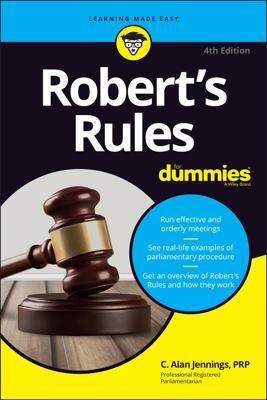Rules are put in place to protect members' rights, and when the rules aren't followed, those rights can get trampled. Fortunately, Robert's Rules says that any member who notices a breach of the rules has a right to call immediate attention to the fact and insist that the rules be enforced by raising a point of order.
If you notice a breach of the rules, especially if that breach impinges on your rights or the rights of other members, you rise — quickly, mind you, even if you interrupt a speaker, or you'll be too late — and say, "Point of order, Madam President!" or "Madam President, I rise to a point of order!"
When you're recognized, you state your reasons for thinking your organization's rules aren't being followed correctly. The president, hopefully, recognizes the validity of your point and goes back to following the rules.
A point of order can be raised at any time when any member notices a violation of the rules. The chair's duty is to make a decision, called a ruling, on the point of order. She may need to check the rules or the bylaws, or ask the parliamentarian for advice, but in any case, a point of order is usually ruled on in one of two ways: The point is declared either "Well-taken," or "Not well-taken," and a short explanation of the ruling is given.
Sometimes, however, the point being raised is not as clear as whether a member's motion is being handled correctly. The point of order may, for example, be that a proposed amendment is not germane to the main motion. In that case, the chair may reasonably be in doubt (or may just prefer to let the assembly decide the point in the interest of harmony). If that's the case, she responds, "The chair is in doubt on the member's point. All those who consider the amendment germane will say aye . . . Opposed, no . . . The ayes have it and the amendment is germane."
A point of order
Can interrupt a speaker who has the floor.
Doesn't need to be seconded.
Isn't debatable.
Can't be amended.
Is decided by the chair.
Can't be reconsidered.

